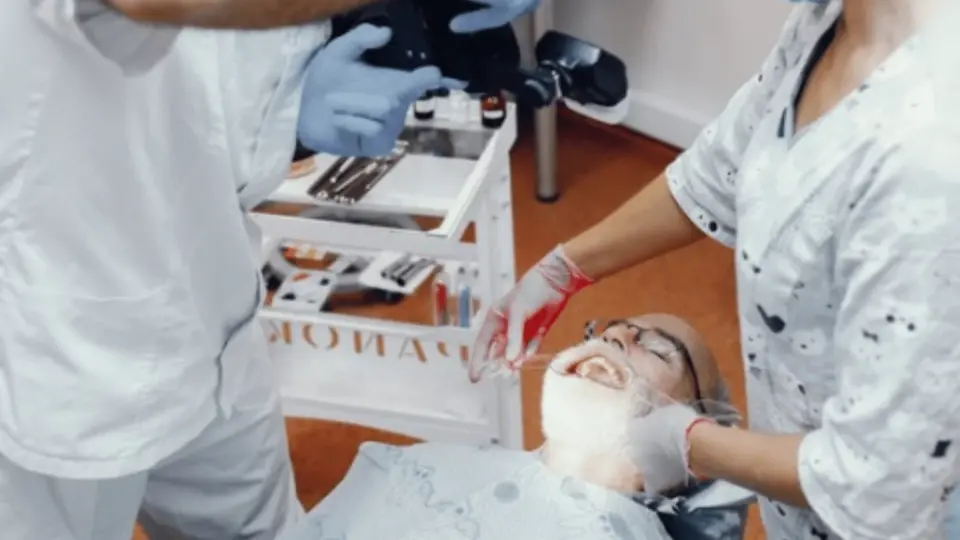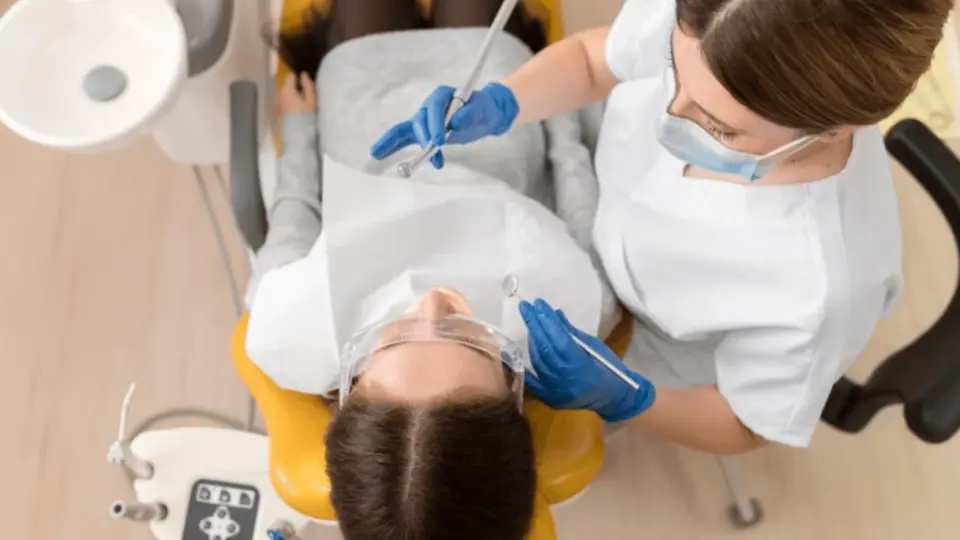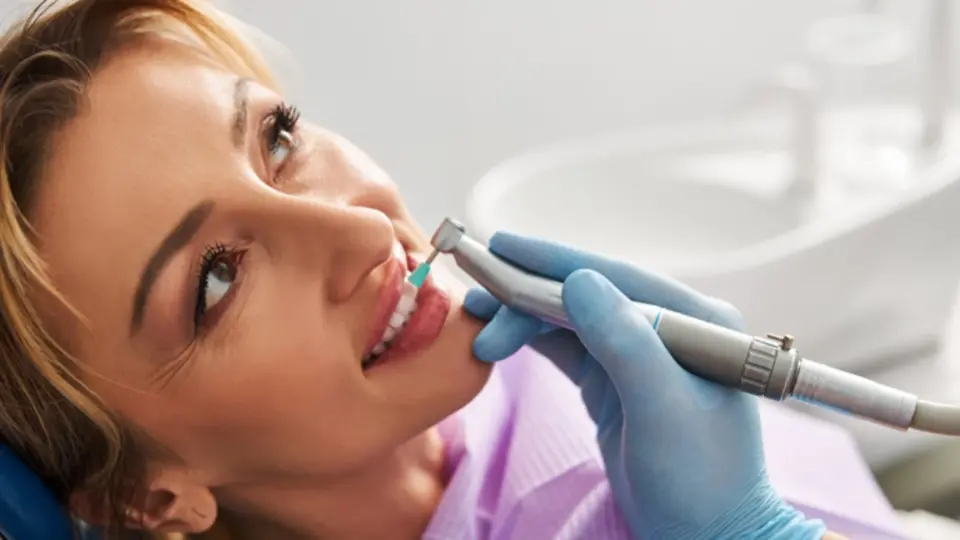Worst Dental Procedures For Your Health

Facing discomfort and potential pain is never top of the list for anyone. However, certain dental procedures, despite our best intentions, often do more harm than good. If you find yourself with a toothache and racing off to the dentist hoping for quick relief, it’s important to consider whether the treatment being recommended may actually undermine your oral and overall health in the long run.
What are some of the most invasive dental procedures that pose potential risks to overall health?
Based on the information gathered from various sources, some of the most invasive dental procedures that pose potential risks to overall health include:
- Invasive dental treatments (IDTs) such as extractions, gum surgery (gingivectomy/periodontal surgery), and dental implants are considered invasive and linked to short-term acute inflammation and transient increases in the risk for vascular events.
- Invasive dental procedures designed to treat gum inflammation may raise the risk of heart attack and stroke, particularly in the short term.
It’s important to note that while these procedures carry potential risks, the absolute risks are minimal, and the association between invasive dental procedures and adverse events is still a topic of ongoing research and discussion.
How do dentists assess the risk factors associated with different dental procedures?
Dentists assess the risk factors associated with different dental procedures through patient medical history review, clinical examination, and potentially additional diagnostic tests. Here are some standard methods used to assess risk factors:
- Medical History Review: Dentists typically review a patient’s medical history to identify any pre-existing conditions, medications, or allergies that may affect the outcome of dental procedures.
- Clinical Examination: Dentists perform a comprehensive examination of the patient’s oral health, including the teeth, gums, and surrounding tissues. This helps identify any existing dental issues that could impact the success or safety of the procedure.
- Diagnostic Tests: In some cases, dentists may order tests such as X-rays, CT scans, or blood tests to gather more information about the patient’s oral and overall health status.
- Assessment of Oral Health: Dentists evaluate the patient’s oral hygiene, presence of gum disease, bone density, and overall oral health to determine the potential risks associated with the procedure.
- Consultation with Medical Professionals: For patients with complex medical histories or multiple risk factors, dentists may consult with other healthcare providers to ensure a comprehensive assessment of the patient’s overall health.
By employing these methods, dentists can make informed decisions about the suitability of specific dental procedures for individual patients and take necessary precautions to minimize risks.
Are there specific dental treatments known to have higher rates of complications or adverse effects on health?
Based on the information gathered from various sources, specific dental treatments are known to have higher rates of complications or adverse effects on health. Some of these treatments and associated risks include:
- Dental Implant Surgery: Potential complications from surgery may include infection, gum recession, loose implant, nerve or tissue damage, and other less common problems.
- Invasive Dental Treatments: Some studies have suggested that invasive dental treatments may be associated with a transient increase in the risk for vascular events. However, it’s important to note that the absolute risks are considered minimal.
- Cancer Therapies and Dental Considerations: Cancer therapies can lead to oral complications such as mucositis, opportunistic infections (viral or fungal), and salivary gland issues, which can impact oral health.
- Dental Anesthesia: Higher risks are associated with sedation and general anesthesia, especially in older adults and individuals with other health complications.
It’s crucial for patients to be aware of these potential risks and for dental professionals to thoroughly assess the suitability of these treatments for individual patients, taking into account their overall health status and medical history.
What are some of the long-term health implications of undergoing specific dental procedures?
The long-term health implications of undergoing specific dental procedures can encompass many positive and negative effects. Here are some insights based on the information gathered:
- Dental Anxiety and Care Attendance: Long-term effects on dental care behavior, including changes in dental anxiety and attendance, were reported ten years after initial treatment, highlighting the potential long-term psychological impact of dental procedures.
- Oral Health and Overall Health Connection: Ignoring oral health can have long-term consequences on one’s overall health and quality of life, emphasizing the interconnectedness of oral health with systemic health.
- Heart Attack and Stroke Risk: Research has shown that having teeth professionally cleaned during regular dental visits can help reduce the risk for heart attack and stroke, indicating a potential positive long-term impact on cardiovascular health.
- Preventive Effects: Long-term routine dental visits have been associated with lower experiences of dental caries and missing teeth, suggesting a potential preventive effect of regular dental care on long-term oral health.
- Oral Hygiene and Overall Well-being: Poor oral hygiene can lead to increased risks of severe oral inflammation, infection, tooth decay, gum disease, and tooth loss, impacting overall well-being in the long term.
It’s important to note that the long-term health implications of dental procedures can vary based on individual circumstances, the specific procedure performed, and the overall oral health care regimen practiced by the individuals.
Can preventive measures or alternative treatments help minimize the health risks of the worst dental procedures?
Preventive measures and alternative treatments can be crucial in minimizing the health risks associated with potentially challenging dental procedures. Here’s an overview based on the information gathered:
- Preventative Dental Treatments: Regular preventive dental care, such as dental check-ups, cleanings, and fluoride treatments, help prevent dental problems and promote oral health severe dental issues, thereby minimizing the need for more invasive procedures.
- Use of Rubber Dams and High-Volume Saliva Ejectors: Dentists can minimize the spread of aerosols or spatter during dental procedures by using rubber dams and high-volume saliva ejectors, which can reduce exposure risks.
- Oral Health Knowledge and Practice of Preventive Measures: Enhanced knowledge and practice of preventive measures for oral health care among patients and dental professionals can improve dental health and potentially reduce the need for complex and risky dental procedures.
- Adherence to Preventive Care Objectives: Healthy People 2030 includes objectives aimed at increasing preventive care for oral health, underscoring the importance of proactive preventative measures in minimizing dental health risks.
By prioritizing preventive dentistry and embracing strategies to reduce exposure risks during dental procedures, individuals and dental professionals can work proactively to minimize the health risks associated with potentially challenging dental treatments.
Act Now: Protect Your Oral Health Today!
Taking charge of your oral health is crucial, and at Illume Dental of McKinney, we’re dedicated to safeguarding your smile. Join us in embracing a proactive approach to dental hygiene. Schedule regular check-ups, utilize our state-of-the-art preventive treatments, and commit to daily oral care routines. Together, we can achieve stellar oral health and prevent future complications.



